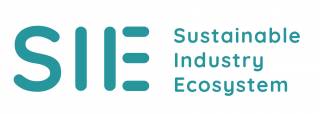Human-Robot Collaboration (HRC Pilot Line & Robolab)
Basic principles of safe human-robot collaboration (HRC) solutions in different areas of industrial and services, and their technology maturity levels and expectations for the future. Legislation and relevant standard defining the basis for HRC will be introduced as well as psychological limits of HRC. Participants will have ability to conceptualize collaborative robotics enabled by modern technologies, including their business aspects.
Virtual Commissioning of Robot Systems (HRC Pilot Line & Robolab)
General requirements and principles of robot workcell design. Participants utilize concurrent engineering and modern 3D-design, simulation and offline programming tools to compare alternative layout options and to optimize workcell performance and robot programs. This also includes gripper and feeder design methods and task and process balancing. Created offline robot programs are implemented in real environment meaning that participants can calibrate and execute created robot offline programs with an industrial robot.
Robotics Exercises (HRC Pilot Line & Robolab)
Basic robot programming skills both online and offline. Participants get familiar with different coordinate systems, movement types, system parameters, and control of external devices with the robot controller. Basic skills for offline robot programming with graphical simulation tools. Restrictions and potential of robotics as well as optimization methods for robot programming will be introduced.
Production Automation Planning
Principles of production automation systems and their design in discrete automation. Basic knowledge how to create a layout, how to select right effective and economical devices to a production line, how to design products with the easy assembly in mind, and how to implement modern digital manufacturing software to design a production line. Participants understand the principles of the production line control systems, safety and the basics of automation components and devices (including robots, feeders, conveyors, sensors, machine vision etc.).
AR/VR safety training and applications (HRC Pilot Line & Robolab)
Basic principles how to utilize AR/VR solutions in robotics safety training. Skills and knowledge how to apply AR/VR tools in layout and product design, evaluation and verification, and how to offline program a robot in VR environment.
Machine Vision
Basic principles of machine vision in robotics.
Sustainable Production
Identifying decisions and measures affecting sustainable development and social change in the circular economy from the perspective of the manufacturing industry. Understanding of the opportunities and challenges of sustainable development and the potential of the circular economy in production activities. Analyzing the significance of day-to-day operational and future-oriented activities in sustainable production operations and applying different development principles to the development of operations. The participant acquires the working life skills to work in expert positions related to sustainable development and the circular economy as part of an organization aiming at sustainable business.
Production Networks
Understanding of globally and locally networked production and typical steps for efficient and appropriate expansion or transition to new markets. Taking into account local culture and identifying key characteristics of local action. The participant acquires the working life skills to work in tasks related to networked production activities as part of an organization aiming at sustainable business.
Design of production systems
An overall view of the key targets and objectives for the design and development of production systems as part of the company’s business activities. The role of factory simulation and the opportunities it offers in the design and development of production systems. The participant acquires the working life skills to work in tasks related to design and development of production systems as part of an organization aiming at sustainable business.
Production Planning and Control
Understanding the different levels of production planning and control in the manufacturing industry as well as the activities and elements to be controlled related to production control. Knowledge of different production control methods and their application to practical applications in the manufacturing industry. Understanding the possibilities offered by information systems for production planning and control in production operations. The participants are able to analyse the impact of different control methods and parameters on the key indicators of production and is able to control production in a sustainable way.

